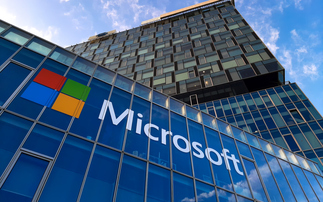Ian Hopkins, sales director UK and Ireland at Centrica Business Solutions, on the rising importance of energy on corporate agendas
The Government's Net Zero target puts the country right at the forefront of the global climate change agenda. Societal attitudes to environment preservation are changing. For businesses, doing nothing is no longer an option.
Many of our customers have reported improved brand perception because they can better demonstrate energy efficiency and low-carbon credentials.
This is an area Centrica has been exploring in our latest research piece Distributed Energy: Future Trends which indicates that for businesses in the UK, environmental stewardship is now seen as the third most important organisational priority behind financial prudence and efficiency.
So, what are the steps that sustainable businesses are making to prepare for the future?
Today's truly sustainable businesses see energy as an opportunity and a strategic asset, not simply a cost. Once the concern of facilities management or procurement, energy has become a boardroom topic, viewed as both a significant challenge and a significant opportunity to demonstrate environmental leadership for the business.
What's more, businesses recognise the risk of not getting their energy strategy right, indeed the risk associated with energy security is one that is rising fast up the corporate risk register - with over a third of respondents (36 per cent) viewing it as a substantial risk to their long-term success.
Self generation
Local, on-site generation is one way that sustainable businesses are taking control of their energy future. The research found that around two thirds (59 per cent) of firms expect factories and workplaces to become the ‘power plants of the future'.
Many are already generating significant amounts of the energy they use on-site, with around two thirds (65 per cent) saying they were already producing 10 per cent of the energy they use themselves through the use of technologies like solar panels and combined heat and power units. What's more, four out of five (81 per cent) plan to increase the amount of power they self-generate over the next five years.
We see the combination of CHP and green gas as an important next step in creating carbon neutral heating and power.
The Sustainable Business
The research shows that UK businesses are responding to market forces around economic and environmental performance to ensure their long-term success, we call this end-state the Sustainable Business.
But, only one in eight organisations are balancing these economic and environmental challenges well. So, while many businesses are making significant progress, a large percentage are very much at the start of the journey.
One action many are taking is to seize control of their energy and decrease their reliance on the grid. Crucially, we're finding that the firms doing this tend to be the most economically sustainable and resilient businesses. One in five (22 per cent) now view energy as an asset that can be traded, unlocking revenue streams and competitive advantage through the use of smart technology, such as demand side response services.
Aside from additional revenue created by selling excess electricity back to the grid, there is also increased importance placed on the need for low carbon supply chains by buyers. Certainly this is backed up within the research - seven in ten companies see taking action on the environment as 'very influential' in a customer's decision to work with their organisation. This shows that many buyers, especially in the B2B space, are increasingly savvy when it comes to purchasing decisions.
What's clear is that achieving true sustainability requires actions on many fronts, but taking that leap of faith will ensure your business is better equipped for the challenges of the future.
The full report can be downloaded here.
Ian Hopkins is sales director for UK and Ireland at Centrica Business Solutions.





